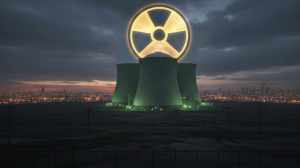Experts urge caution, say don8217;t make Hizbul appear as another renegade group sold out to Delhi
SRINAGAR, AUGUST 4: It was a great photo-op: four top Hizbul commanders shaking hands with Union Home Ministry bureaucrats in the high-sec...

SRINAGAR, AUGUST 4: It was a great photo-op: four top Hizbul commanders shaking hands with Union Home Ministry bureaucrats in the high-security Nehru Guesthouse under full media glare. But that image has provoked many in the Valley, even those who strongly support the peace initiative, to remark that the Government needs to be more 8220;cautious and mature.8221;
Tom-tomming anything at so early a stage, they argue, could be counter-productive given that mistrust and suspicion are bywords in the Valley. And all kinds of conspiracy theories are doing the rounds to discredit the peace process.
In fact, the Hizbul itself is wary. Strongly supporting the unconditional talks and welcoming the 8220;fresh approach8221; by New Delhi, it8217;s nevertheless aware that it8217;s a long haul and success will largely depend on the level of credibility and respect it can maintain with the people.
Hizbul point man Fazal Haq Qureshi told The Indian Express that he hadno idea that the first-ever meeting would be done under so much media glare. 8220;I had a tough time with the Hizbul commanders becuase they were shocked to see so many cameras focused on them,8221; Qureshi said. In fact one of Qureshi8217;s party colleagues, Musadiq Aadil, was so angry that he told a few TV photographers that he would 8220;break their equipment8221; if they didn8217;t switch the cameras off.
Hizbul commanders and the facilitators were annoyed because they said that it had been mutually agreed not to invite the press to the venue of the meeting but talk to them later and separately. 8220;In Kashmir, thepeace process itself was not that important. The most important aspect ofthe whole issue was is establish genuineness and credibility of theinitiative because people take everything with lots of salt,8221; said areleased militant leader.
8220;If people start doubting the Hizbul8217;s intentions, everything will vanish into thin air. Thousands have been killed during these years and if you want to initiate a process of healing and reconciliation, you have to avoid discrediting the Hizbul by creating a feeling that they have joined hands with Delhi,8221; he said.
8220;The way the Hizbul commanders, two of them masked, were paraded beforethe media with Kamal Pandey stressing that the initiative was for peacesent a signal that New Delhi wants Hizbul to turn into another Ikhwan and join counter-insurgency,8221; said a local columnist and editor.
Others cite the example of New Delhi holding talks with Naga militants discreetly, even going to the extent of doing it in cities like Amsterdam and Bangkok.
Another point being raised is the level of the dialogue. A Kashmir University teacher and a Hizbul supporter says that when fourformer militant commanders 8212; with no mass base 8212; showed their readiness for a dialogue with the Government, the Centre had sent Union Home Minister S B Chavan. And this time, they sent bureaucrats.
What makes these signals all the more important is the complex character of militancy in the Valley. Case in point: the Hurriyat8217;s reaction. In fact, the serious individual ego problems within the conglomerate forced the Hurriyat leadership to ignore Hizbul commander Majeed Dar8217;s pleas to come forward and give a political weight to their move by appealing to the militants for a ceasefire. In contrast, the Hurriyat has been doubting the authenticity of the latest move despite the consensus in the Valley that New Delhi has taken a 8220;fresh approach.8221;
- 01
- 02
- 03
- 04
- 05































